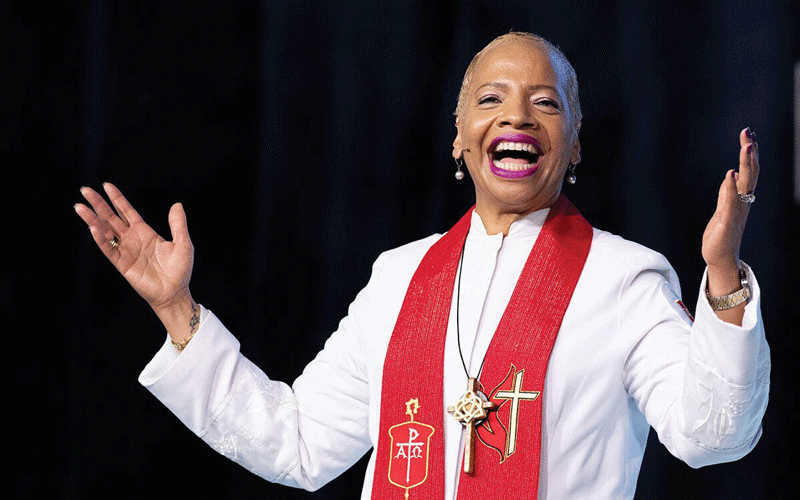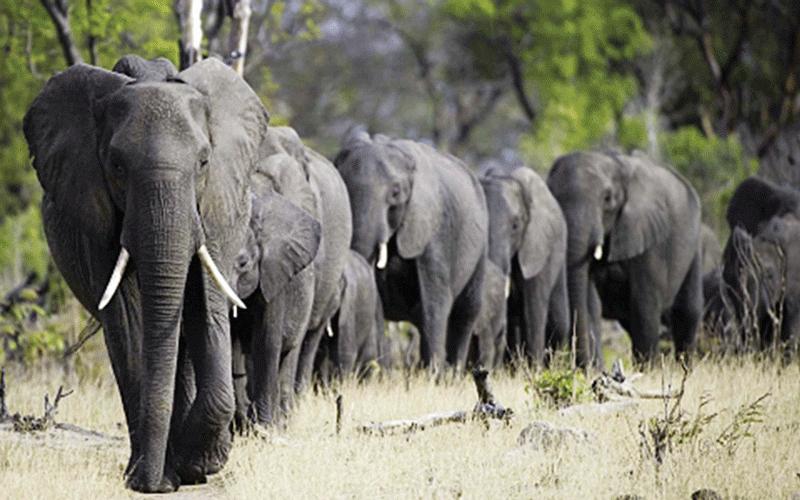
When the General Conference of the United Methodist Church met on May 2, 2024 in Charlotte, North Carolina, Sister Bishop, Tracy Malone put up a brave face.
Flanked by a large number of women bishops, using the language of “gayism” an announcement, purporting to break with the past traditions of “excluding” certain marginalised groups in the human family was made.
The bishops had erased from the Methodist Book of Discipline rule 304 which stated that; “The practice of homosexuality is incompatible with Christian teaching.” (1972)
In their exuberance they had further lifted restrictions on clergy to officiate at, and congregations to host, weddings between adults of same sex gender.
Not satisfied with these, they eliminated Methodism Social Principles by a direct attack on the sanctity of marriage itself as between man and woman (St. Paul) to include two adults of the same sex.
“These significant actions” according to Bishop Elizabeth Eaton, amidst ululations and back patting by progressive disciples “were a witness to the ecumenical vocation we share as we celebrate 15 years of full communion.”
This language comes from former president Barak Obama’s playbook (2008-2016). Realising that the Democratic coalition founded on unwavering support of blacks and white college educated women was too narrow to win elections, he brought in the idea of widening diversity, equity and inclusion (DEI).
In the Title IX directive, gays and lesbians are specifically mentioned as groups which must be include in corporations and institutions in order to meet federal requirements for funding.
- Community trailblazers: Chikoore aims to pen 100 books
- Gospel music should go beyond spreading the word: Mutambikwa
- Ugandan gay woman granted refugee status in Japan
- United Methodist Church golf tournament on cards
Keep Reading
By permitting gay marriages in the military and getting a progressive Supreme Court to include that dispensation under Amendment XIV (Equal Protection) the churches were left with a fait accompli.
But here was the plan. Black pastors, basking in the shadow of invitations to the White House by a black president shouted; “Don’t criticise a black president.”
The story had been propagated in the United Methodist Church by Reconciling Ministries, a shadow group that claimed to spearhead outreach to marginalised social groups such as gays, prostitutes and drunkards.
The abolition of paragraph 304 in the Book of Discipline became their target since 1965.
What seems to be the problem?
I have just come from a day long workshop of the United Methodist Church. The theme had something to do with re-establishing the foundations of the church.
If the truth be said, the United Methodists in the US and in the world should be asking themselves the question that the prophet Ezekiel asked. “Can these dry bones live again?”
The once mighty church, with 11 million members in 1973 and the second largest protestant denomination in the US, can now barely call upon 4 million members to carry the cross.
I am only the smallest of the saints, my title being that of Lay Servant (Mukulu wa MaDikoni). In that lowly position, I led and chaired the South Carolina State Commission for Equitable Compensation for 8 years. This commission advises the bishop on salaries and standards for pastors.
Two stories will help the reader.
The higher one goes in the hierarchy of the church, the more sympathy one gets for this sinful lifestyle. In 2016, I was sent to Los Angeles on behalf of a South Carolina Church Commission to a workshop.
We were welcomed by bishop Karen Oliveto who overwhelmed us with her sermons on love and inclusiveness. In God’s house there were no outsiders, she said. At lunch I sat opposite her. Olivetti’s companion was Ms. Robin Ridenour, the bishop’s wife.
I have a sixth sense that is generally attributed to people born in the jungles of Africa. One senses the presence of lions before one can see them.
On my return to South Carolina, I quickly realised that there was much sympathy among the “principals” (Zimbabwean English) and that wise men know when to speak and when to shut up.
Please bear with me. I speak from the inside. Zvimwe ndirikusiya. (Some things must be left out)
My conclusion was that such behavioturs were probably already widespread among the clergy. That is the point I am making.
The decision to change the Book of Discipline apparently shocked the laity in the US and immediately 4 500 churches left the denomination (about 40% of their strength).
The hierarchy was probably unaware of the resistance to these changes by African and Philippine churches.
Philippine and African bishops say that their travel arrangements were made too late for the majority to acquire visas from the US State Department.
Is money involved?
In any event, it is possible that Third World Methodist Churches will find themselves financially starved.
A bishop’s financial viability is determined by the General Conference. An American bishop earns roughly US$100 000 plus and has an emolument averaging a quarter million. An African bishop would have two thirds what an American bishop has.
There is also interconnectedness. The US State Department has been more than generous to Africa University.
There is a beautiful section of the campus gifted by the people of the United States, which according to the chief financial officer there, costs US$2.5 million to run.
South Carolina Methodists claim Africa University as their baby in Christ and have set aside apportionments for the saints through that university.
I was involved in an effort to support a Methodist seminary in Liberia under Bishop Arthur Kulah.
Bishop Kulah realized the implications of all these decisions way back in 2019. African brothers did not disagree with his foundational argument, that if the church loses its foundation in the Bible, then it becomes a social organization.
That was not the issue. Now, you will say: “Ken, what was the issue?” Allow me to simply say-and ask you this question.
What would a brother bishop do, in a God forsaken malaria infested episcopate, if his US$8 000 per month was withdrawn?
It really is not the bishops to decide. What will Amai Bishop say about that?
I leave you with that thought.
Failure everywhere.
Episcopalians and the Presbyterians, who accepted gay priests 20 years ago have not seen growth in membership.
While the Sothern Baptists have retained their “foundational principles” they are accused bigotry, racism and acrimony.
Despite adopting the ordination of women and gay marriages no protestant church has seen any increase in membership.
*Ken Mufuka is a Zimbabwean patriot. He writes from the US.









